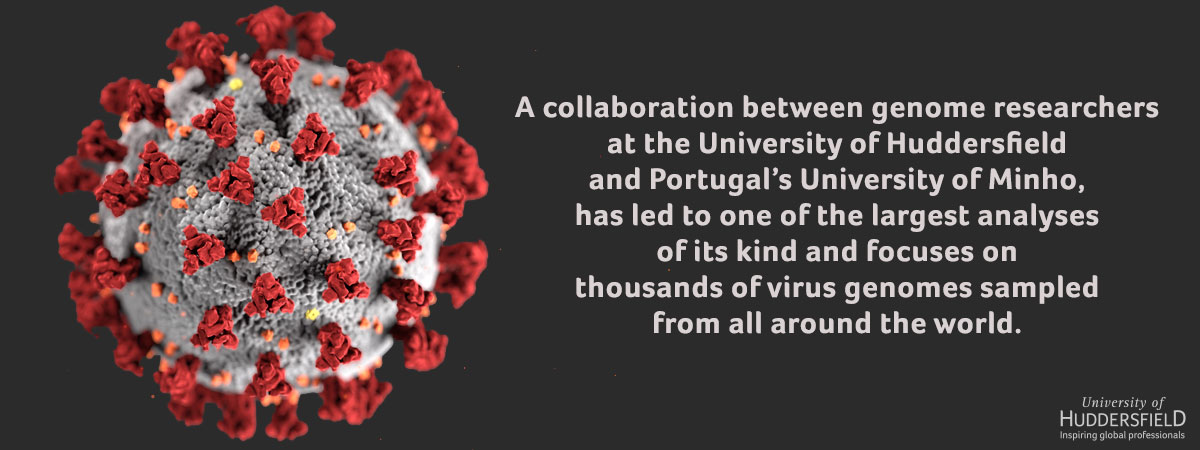A collaboration between genome researchers at the University of Huddersfield and Portugal’s University of Minho, has led to one of the largest analyses of its kind focussing on thousands of virus genomes sampled from all around the world
THE University of Huddersfield's Archaeogenetics Research Group has mapped out the dispersal of the SARS-CoV-2 coronavirus, responsible for the current worldwide COVID-19 pandemic, putting Europe centre-stage as the main source of the spread.
The group’s findings, recently published in a special issue of the peer-reviewed journal Microorganisms, confirm that the virus originated in China and most likely jumped into humans from horseshoe bats. But that it is Europe, not China, which has been the main source for spreading the disease around the world.
The research also suggests that travel restrictions across Britain and Europe seem to have been too little and too late and that the actual spread of the virus to America and other parts of the world was largely via Europe, and not directly from China.
The study focused on 27,000 virus genomes, sampled from all around the world. The researchers usually work on tracking ancient human migrations using mitochondrial DNA, and they capitalised on the fact that the virus genome is similar in crucial respects.
Still, the mammoth size of the database, even back in May when the study began, makes this one of the biggest analyses of its kind ever undertaken.
The intensive data analyses were carried out by clinical geneticist Dr Teresa Rito and evolutionary geneticist Dr Pedro Soares. Both are based at the University of Minho, in Portugal and have worked closely with the University of Huddersfield’s Professor Martin Richards and Dr Maria Pala, as part of the Archaeogenetics Research Group, on many occasions. The pair called upon the knowledge and expertise of their colleagues in the UK to help make sense of the data and publish their conclusions in double-quick time.
Professor Richards explained how there is a huge ongoing worldwide effort to understand the spread of the coronavirus and that researchers are trying to make their work available to the public as fast as possible.
As the world continues to face a rapidly spreading pathogen, Dr Pala believes a greater understanding of the virus will better inform and improve upon policies designed to control the spread.
“With thousands of lives still at risk,” added Dr Pala, “the need for scientific research is now more crucial than ever.”
- Full findings of the research have been published in a special issue of the journal Microorganisms and can be downloaded for free via https://www.mdpi.com/2076-2607/8/11/1678
More news from the Department of Biological and Geographical Sciences
{{item.title}} - News Story

